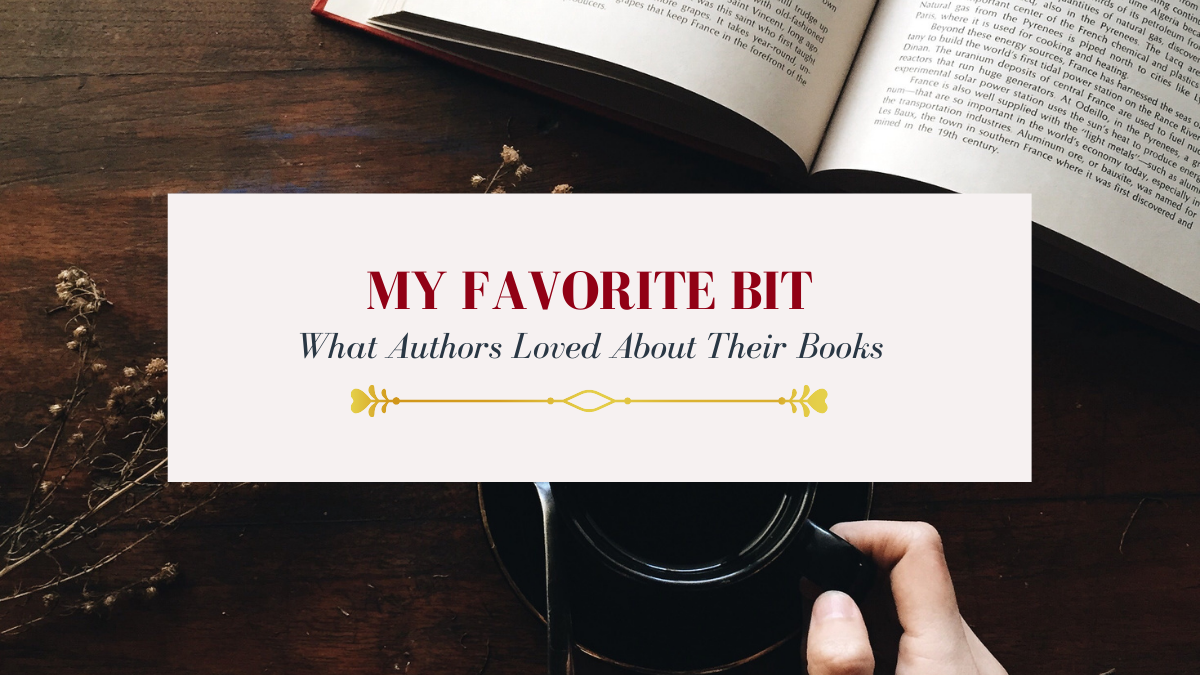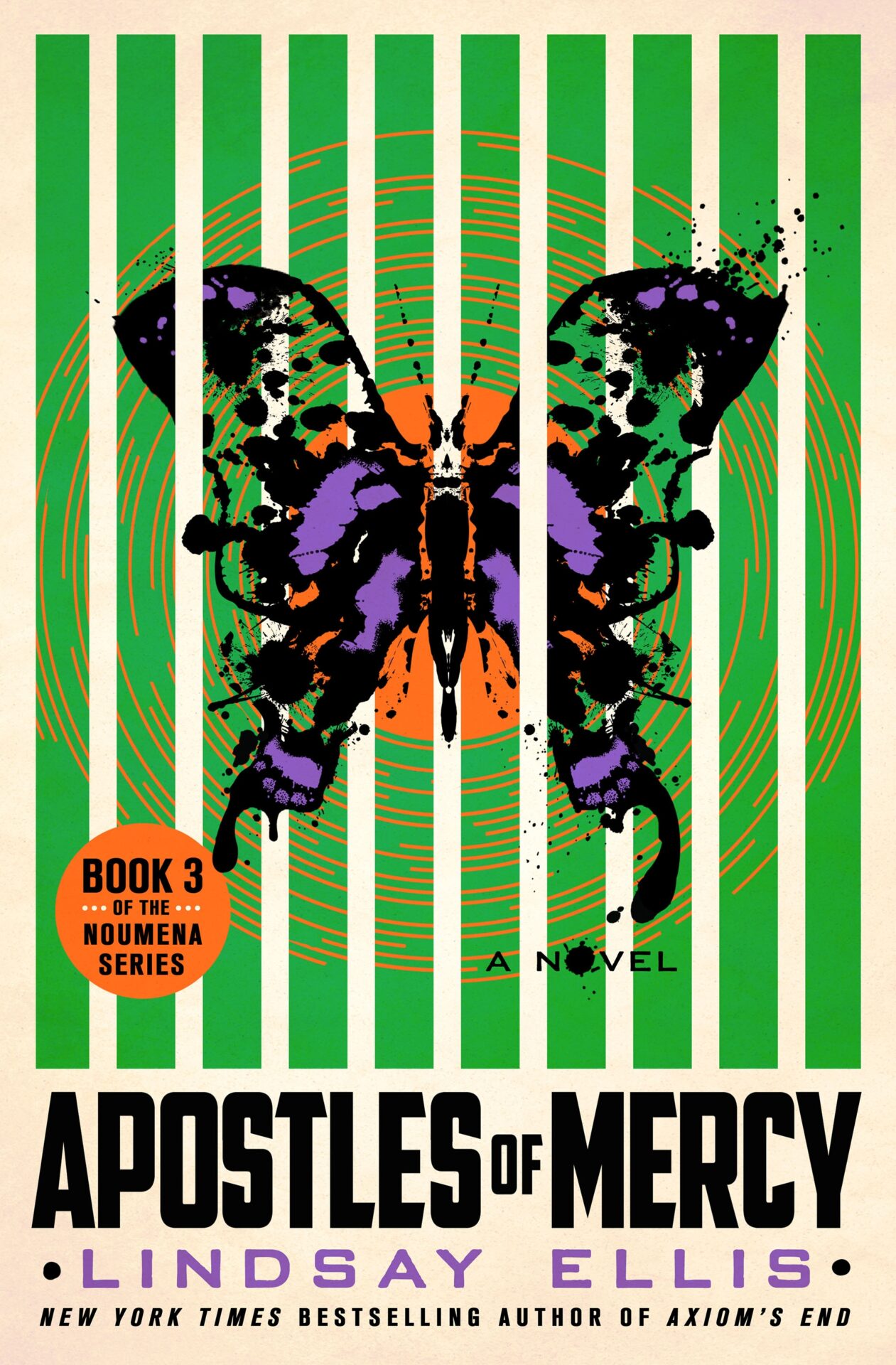
Lindsay Ellis is joining us today to talk about her novel, Apostles of Mercy. Here’s the publisher’s description:
Apostles of Mercy is the new alternate history first contact novel from the instant New York Times, Wall Street Journal and LA Times bestselling Lindsay Ellis.
First Contact has not been going well. The nations of Earth are rapidly militarizing against the arrival of the Superorganism, an alien civilization that promises to destroy humanity before it can develop into a real threat. The Superorganism has done it before–to their distant transient relatives–and they could easily do it again. But the alien Ampersand and his human interpreter Cora Sabino are done with trying to save humanity from both the Superorganism and itself; to them, this is a civilization that does not deserve to be saved.
When a strange new form of communication between the two of them reveals to Cora how alien Ampersand truly is, she begins to question her blind devotion. But she soon learns of a danger that may force them to leave Earth before either of them are ready: a group of superorganism enemies that have been wreaking havoc on Earth for decades. Existence on the margins has made them desperate and bent on revenge against any of Ampersand’s race whose path they cross. Before Cora and Ampersand can make their final escape, these hostile aliens stage an attack, and take that which is most dear to both of them.
Ampersand’s enemies will not consider any form of truce; the greatest threat to them is not from the Superorganism, but from an increasingly fearful and violent human civilization newly aware of their existence. Cora and Ampersand must go to extreme measures to take back what was stolen and prevent wholesale human extermination–but in doing so they may be no better than the civilizations they are trying to escape.
What’s Lindsay’s favorite bit?

Deep in the annals of my inner childhood psyche, one of my first major disappointments must have been that the Beast turns human again at the end of Disney’s Beauty and the Beast. The filmmakers even joke about this during the audio commentary for the DVD edition that came out in 2002, the challenge of having spent the entire narrative getting the audience to fall in love with The Beast only for the audience to go, in the words of co-director Gary Trousdale, “Who is this guy? I want my bison!” It’s a narrative pet peeve of mine when we spend the whole story trying to humanize the Other, only for them to ultimately just be an easily-acceptable human (and usually a young-looking sexy one at that). I wanted to write a Beauty and the Beast story where not only does the Beast stay a beast, both physically and intrinsically, but only becomes more alien the more we learn about him. Where Beauty doesn’t humanize him, doesn’t “tame” him as the genre usually goes, but instead sees her own humanity start to erode. Where she initially sees this as horrifying, but the more distant and disaffected she grows from her own people, the more she sees that as not such a bad thing.
The first book of the series, Axiom’s End, is where Beauty meets her Beast, in which Hades kidnaps Persephone and our Persephone, Cora Sabino, decides, well, let’s make the best of this. The beast in question, the amygdaline alien whom she calls Ampersand, remains thoroughly alien both inside and out, and as the series progresses, their growing closeness reveals how different they are, differences that may be ultimately insurmountable. In the first book, Ampersand alludes to a form of language he calls “high language” preferred by his own kind, one which involves some form of melding of neural networks, of which humans are sadly physically incapable. Wouldn’t it solve so many problems if humans were capable of this? Too bad for us. Womp womp. So while by the end of the first book Cora and Ampersand are bound together through some vague extradimensional essence (for Plot Reasons–read the book to find out more), they can never really know each other the way amygdalines do. Ampersand can communicate to Cora through human spoken and written language, and she acts as his interpreter for everyone else, and that’s fine and all, but they can never communicate through his preferred method. They can never truly know each other.
Or can they? (Dun dun…)
In the second book, Truth of the Divine, not only does Cora discover that Ampersand lied about quite a few important things in the first book, but that, with enough time, engineering and trial and error, high language between human and amygdaline might be possible. So by Apostles of Mercy, Ampersand has figured it out–it’s taken him more than a year of intense labor and experimentation, and it has come at great cost (mostly to Cora), but he’s finally put together the technology to make her capable of high language.
And it is the most horrifying, revolting thing Cora has ever experienced.
Ampersand’s consciousness becoming one with hers is less the peaceful melding of minds he sold it as so much as it is being invaded by an Eldritch horror. Where he is convinced that they simply need to work out the kinks, she’s convinced that he is overestimating the strength of her consciousness and underestimating his; she’s convinced another try will kill her. Cora is stuck in something of a sunk cost; she’s sacrificed so much for Ampersand, devoted so much of her life and herself to him, even resolved to abandon Earth altogether for him, only to discover that the thing he wants more than anything from her she may not be able to deliver on, no matter how much he wants her to be.
Ultimately any relationship in genre fiction, be it between a human and a human or a wookiee and a galaxy far far away-humanoid person, is a means to explore the way we relate to each other in the real world. And I feel the older I get, the less I realize I know about how to navigate relationships, that we are all ultimately trapped in the islands of our own minds from cradle to grave. Genre fiction is ultimately a playground of thought experiments, mostly of things that could never happen, but at the same time it is a mirror to our own lived experience. Beauty and the Beast stories are fundamentally about relationships, and how we relate to the Otherness in those closest to us–I love exploring that in my books in both the literal and metaphorical sense.
LINKS:
BIO:
LINDSAY ELLIS is a New York Times bestselling author, Hugo Award finalist, and video essayist who creates online content about media, narrative, literature, and film theory. After earning her bachelor’s in cinema studies from NYU’s Tisch School of the Arts, she earned her MFA in film and television production, with a focus in documentary and screenwriting, from USC’s School of Cinematic Arts. She lives in Long Beach, California. Her debut novel, Axiom’s End, was an instant New York Times bestseller.
